- Browse
- Circuits
Circuits Courses
Circuits courses can help you learn about electrical components, circuit design, signal processing, and troubleshooting techniques. You can build skills in analyzing circuit behavior, using simulation software, and implementing practical projects. Many courses introduce tools like multimeters, oscilloscopes, and circuit simulation programs, that support testing and validating your designs.
Popular Circuits Courses and Certifications
 Status: PreviewPreviewG
Status: PreviewPreviewGGeorgia Institute of Technology
Skills you'll gain: Basic Electrical Systems, Electronic Components, Electrical Systems, Electronic Systems, Electrical Engineering, Engineering Analysis, Electronics, Engineering Calculations, Physics, Schematic Diagrams
4.5·Rating, 4.5 out of 5 stars1.5K reviewsMixed · Course · 1 - 3 Months
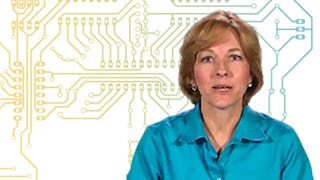 Status: PreviewPreviewG
Status: PreviewPreviewGGeorgia Institute of Technology
Skills you'll gain: Electronic Components, Semiconductors, Electronics, Electrical Engineering, Basic Electrical Systems, Electronics Engineering, Engineering Analysis, Schematic Diagrams
4.7·Rating, 4.7 out of 5 stars2.6K reviewsMixed · Course · 1 - 3 Months
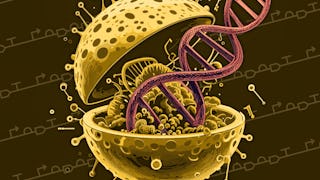 Status: Free TrialFree TrialU
Status: Free TrialFree TrialUUniversity of Colorado Boulder
Skills you'll gain: Biological Engineering, Markov Model, Molecular Biology, Biotechnology, Bioinformatics, Simulation and Simulation Software, Mathematical Modeling, Engineering Analysis, Mathematical Software, Electrical Engineering, Engineering Design Process, Simulations, Biochemistry, Computational Thinking, Failure Analysis, Differential Equations, Cell Biology, Hazard Analysis, Technical Design, Chemical Engineering
Build toward a degree
4.5·Rating, 4.5 out of 5 stars35 reviewsIntermediate · Specialization · 3 - 6 Months
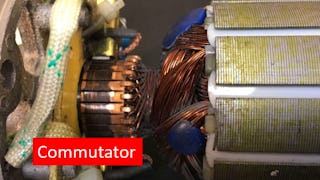 Status: Free TrialFree TrialU
Status: Free TrialFree TrialUUniversity of Colorado Boulder
Skills you'll gain: Control Systems, Basic Electrical Systems, Electrical Systems, Power Electronics, Three-Phase, Torque (Physics), Electrical Equipment, Embedded Software, Electronics, Electrical Wiring, Electronic Hardware, Design Specifications, System Requirements, Laboratory Experience, Electronic Components
Build toward a degree
4.7·Rating, 4.7 out of 5 stars1.4K reviewsIntermediate · Course · 1 - 3 Months
 Status: Free TrialFree TrialR
Status: Free TrialFree TrialRRice University
Skills you'll gain: Basic Electrical Systems, Electrical Engineering, Torque (Physics), electromagnetics, Physics, Electrical Systems, Engineering Analysis, Electronics, Electronic Components, Engineering Calculations, Mechanics, Mathematical Modeling, Applied Mathematics, Problem Solving, Calculus, Advanced Mathematics, Mathematical Theory & Analysis, Differential Equations, Trigonometry, Integral Calculus
4.7·Rating, 4.7 out of 5 stars265 reviewsIntermediate · Specialization · 3 - 6 Months
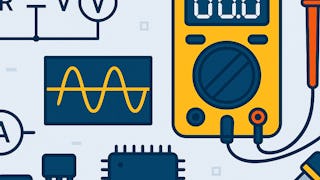 Status: NewNewB
Status: NewNewBBirla Institute of Technology & Science, Pilani
Skills you'll gain: Electronic Systems, Semiconductors, Basic Electrical Systems, Electrical Engineering, Electronics, Electronic Components, Electronics Engineering, Power Electronics, Electrical Systems, Engineering Analysis, Network Analysis, Engineering Calculations, Control Systems, Applied Mathematics
Beginner · Course · 1 - 3 Months
What brings you to Coursera today?
 Status: PreviewPreviewG
Status: PreviewPreviewGGeorgia Institute of Technology
Skills you'll gain: Electrical Power, Electrical Engineering, Basic Electrical Systems, Electronics, Power Electronics, Electronic Components, Engineering Analysis, Mathematical Modeling, Engineering Calculations, Plot (Graphics), Verification And Validation
4.7·Rating, 4.7 out of 5 stars768 reviewsIntermediate · Course · 1 - 3 Months
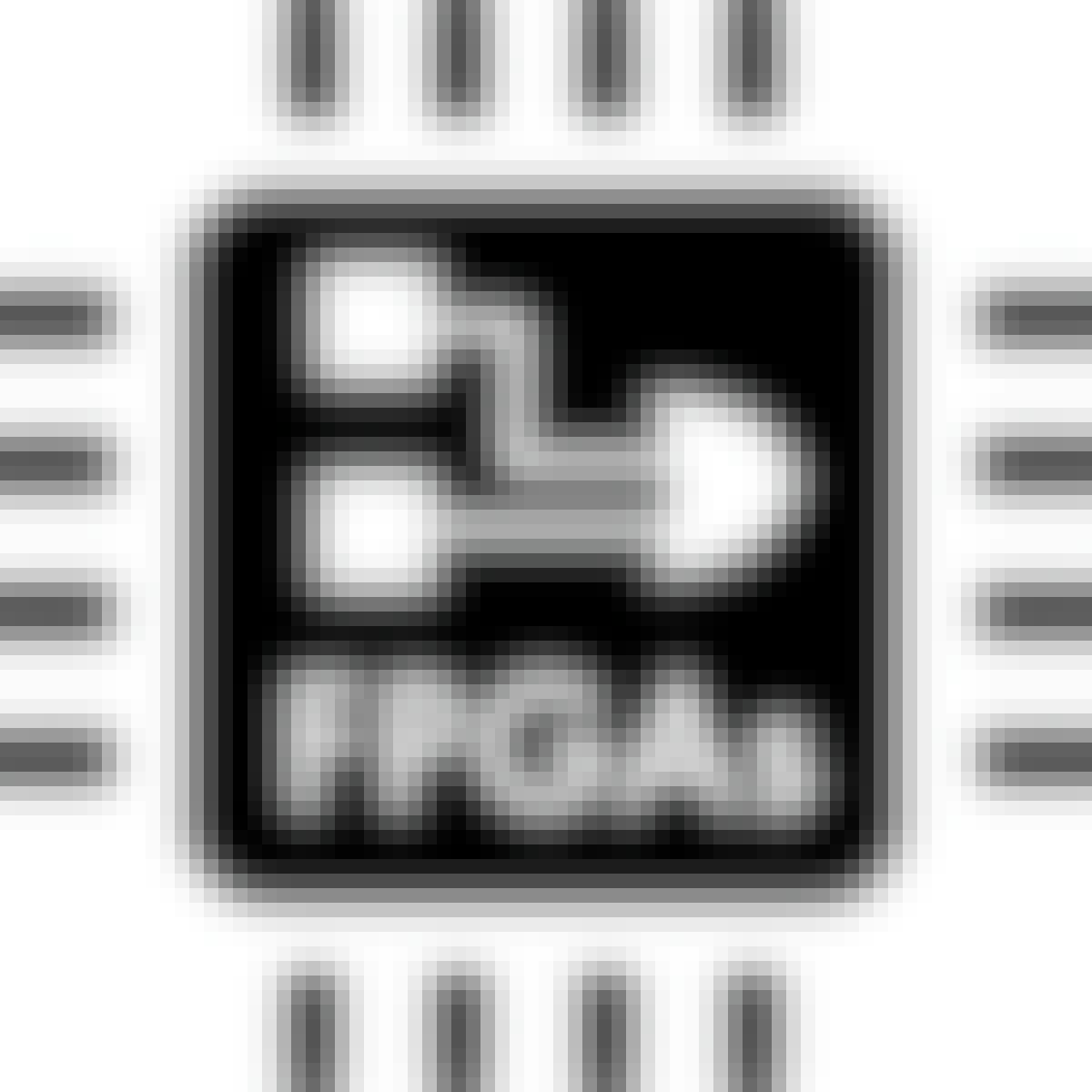 Status: Free TrialFree TrialU
Status: Free TrialFree TrialUUniversity of Colorado Boulder
Skills you'll gain: Field-Programmable Gate Array (FPGA), Hardware Design, Verification And Validation, Electronic Systems, Embedded Systems, Electronics Engineering, Application Specific Integrated Circuits, Electronic Hardware, Electronics, Systems Design, Software Design, Program Development, Integrated Development Environments, System Design and Implementation, Computer Architecture, Eclipse (Software), Computational Logic, Hardware Architecture, Software Development, Computer Engineering
Build toward a degree
4.5·Rating, 4.5 out of 5 stars1.7K reviewsIntermediate · Specialization · 3 - 6 Months
 Status: PreviewPreviewE
Status: PreviewPreviewEExploratorium
Skills you'll gain: Developing Training Materials, Electronics, Creativity, Design Thinking, Education Software and Technology, Basic Electrical Systems, Driving engagement, Experimentation, Design, Computational Thinking, Creative Design, Construction
4.7·Rating, 4.7 out of 5 stars48 reviewsBeginner · Course · 1 - 3 Months
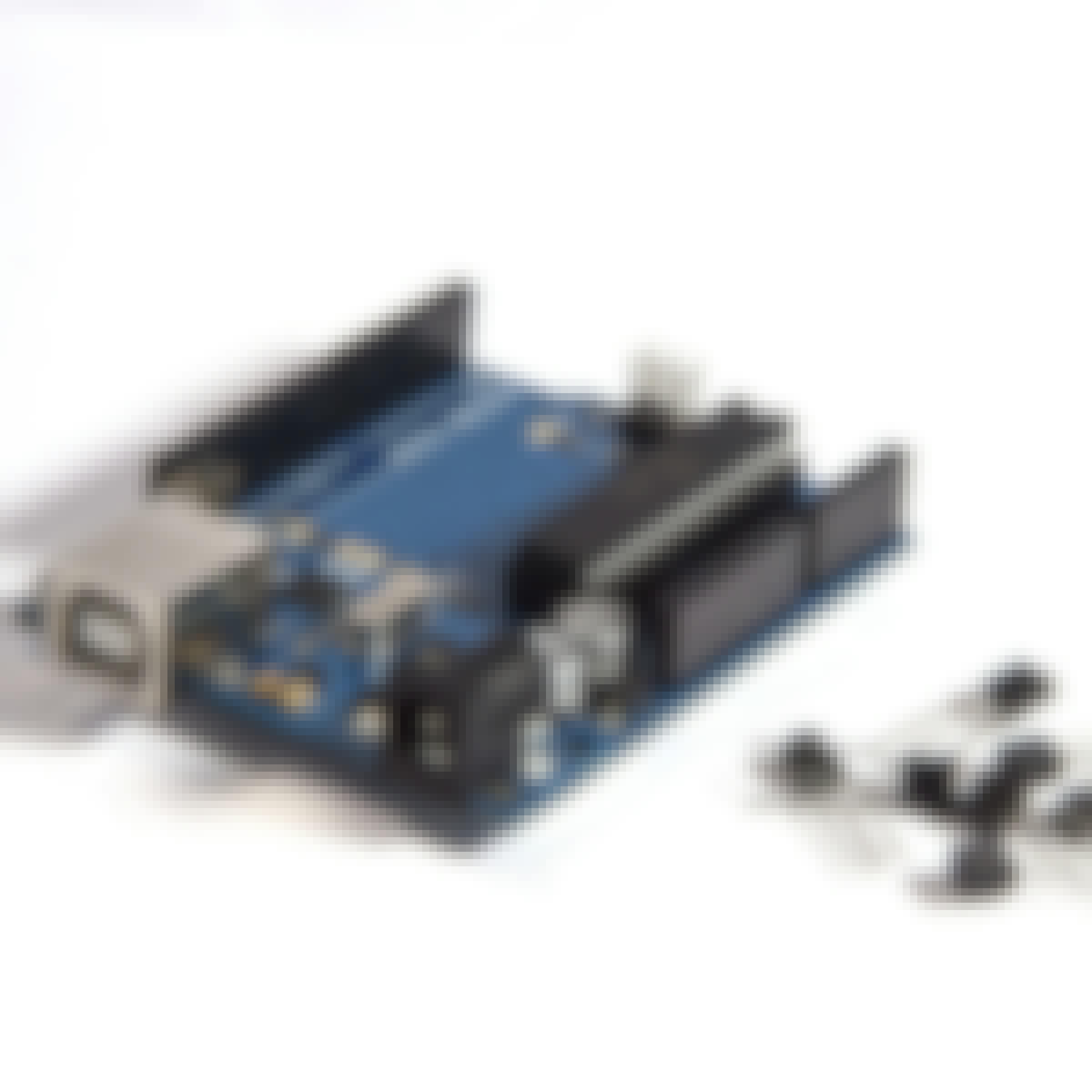 Status: Free TrialFree TrialU
Status: Free TrialFree TrialUUniversity of California, Irvine
Skills you'll gain: Internet Of Things, Basic Electrical Systems, Automation Engineering, Electronics, Electronic Components, Embedded Systems, Control Systems, Electronic Hardware, Wireless Networks, Electrical and Computer Engineering, Hardware Design, Peripheral Devices, Human Machine Interfaces, Electrical Wiring, Computer Systems, Programming Principles, Systems Engineering, Computer Programming, Remote Access Systems, Interactive Learning
4.7·Rating, 4.7 out of 5 stars4K reviewsMixed · Course · 1 - 4 Weeks
 Status: Free TrialFree TrialU
Status: Free TrialFree TrialUUniversity of Colorado Boulder
Skills you'll gain: Verification And Validation, Systems Design, Software Design, Computational Logic, Computer Engineering, Embedded Systems, Hardware Architecture, Simulations, Test Automation
4.4·Rating, 4.4 out of 5 stars625 reviewsIntermediate · Course · 1 - 4 Weeks
 Status: Free TrialFree TrialU
Status: Free TrialFree TrialUUniversity of Colorado Boulder
Skills you'll gain: Semiconductors, Electrical Engineering, Electronic Systems, Electronic Components, Materials science, Electronic Hardware, Electronics, Electrical and Computer Engineering, Physics, Electronics Engineering, Applied Mathematics, Mathematical Modeling
Build toward a degree
4.4·Rating, 4.4 out of 5 stars612 reviewsAdvanced · Specialization · 1 - 3 Months
In summary, here are 10 of our most popular circuits courses
- Linear Circuits 1: DC Analysis: Georgia Institute of Technology
- Introduction to Electronics: Georgia Institute of Technology
- Engineering Genetic Circuits: University of Colorado Boulder
- Motors and Motor Control Circuits: University of Colorado Boulder
- Introduction to Electricity and Magnetism: Rice University
- Basic Electronics: Birla Institute of Technology & Science, Pilani
- Linear Circuits 2: AC Analysis : Georgia Institute of Technology
- FPGA Design for Embedded Systems: University of Colorado Boulder
- Tinkering Fundamentals: Circuits: Exploratorium
- Interfacing with the Arduino: University of California, Irvine
Frequently Asked Questions about Circuits
Careers in circuits span a wide range of industries, including electronics, telecommunications, and engineering. Potential job titles include electrical engineer, electronics technician, circuit designer, and systems engineer. These roles often involve designing, testing, and maintaining circuit systems, making a solid understanding of circuits essential for success.
Some of the best online courses for learning about circuits include Linear Circuits 1: DC Analysis and Linear Circuits 2: AC Analysis. These courses provide foundational knowledge and practical applications, making them ideal for anyone looking to deepen their understanding of circuit design and analysis.
Yes. You can start learning circuits on Coursera for free in two ways:
- Preview the first module of many circuits courses at no cost. This includes video lessons, readings, graded assignments, and Coursera Coach (where available).
- Start a 7-day free trial for Specializations or Coursera Plus. This gives you full access to all course content across eligible programs within the timeframe of your trial.
If you want to keep learning, earn a certificate in circuits, or unlock full course access after the preview or trial, you can upgrade or apply for financial aid.
Typical topics covered in circuits courses include Ohm's Law, Kirchhoff's laws, circuit components (resistors, capacitors, inductors), and analysis techniques for both AC and DC circuits. Advanced courses may also explore digital circuits, circuit design methodologies, and the use of software tools for simulation and modeling.
For training and upskilling employees in circuits, courses like Engineering Genetic Circuits: Design and Motors and Motor Control Circuits are excellent choices. These courses provide practical knowledge and skills that can be directly applied in the workplace, enhancing employee capabilities in circuit design and analysis.










